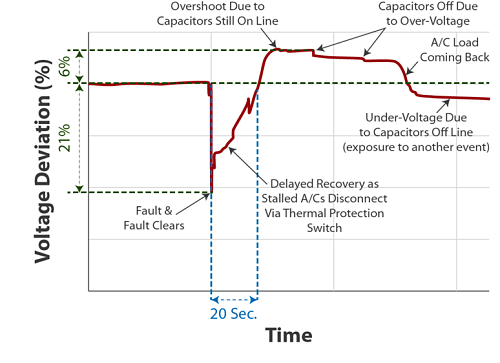 Fault-induced delayed voltage recovery (FIDVR) refers to unexpected delay in the recovery of voltage to its nominal value following the normal clearing of a fault. Initial observations of these delays by utilities in the western interconnection led to concerns that they might precipitate widespread cascading blackouts.
Fault-induced delayed voltage recovery (FIDVR) refers to unexpected delay in the recovery of voltage to its nominal value following the normal clearing of a fault. Initial observations of these delays by utilities in the western interconnection led to concerns that they might precipitate widespread cascading blackouts.
The FIDVR initiative sought to identify the physical mechanisms that caused the delay, assess the risks the delay and recovery posed to the reliability of the US power system, and, if appropriate, identify appropriate measures to manage these risks.
The initiative confirmed that stalled residential air conditioning (AC) units (powered by single-phase induction motors) were the cause of FIDVR. The initiative also confirmed that FIDVR events were common to utility distribution systems, but generally speaking did not pose a significant threat to the reliability of the bulk transmission system. The initiative is recognized as having contributed materially to renewed efforts by the power industry to better understand trends affecting the characteristics of loads, especially those involving power electronics, and their interactions with the power system.
